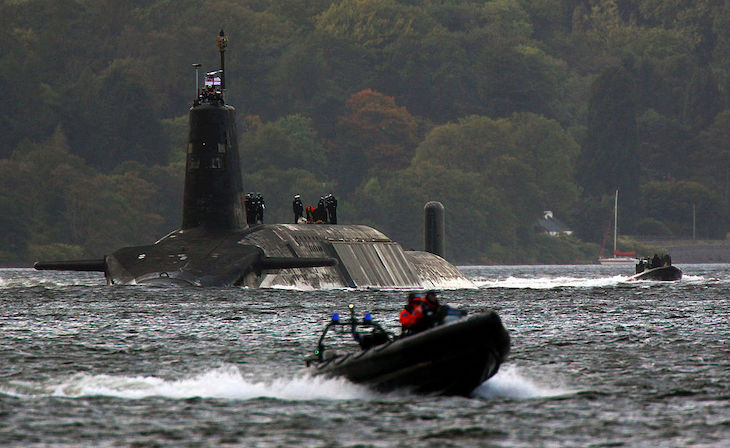With Keir Starmer having rid the Labour party of its Corbynite doctrines, Britain’s independent nuclear deterrent would not be expected to feature much in the coming general election campaign. But will that change after the failed test firing of a Trident missile, for the second time in a row? The missile, which was launched from HMS Vanguard off the east coast of the United States in January, was intended to travel to the edge of space before landing in the middle of the Atlantic.
Already a subscriber? Log in
Subscribe for just $2 a week
Try a month of The Spectator Australia absolutely free and without commitment. Not only that but – if you choose to continue – you’ll pay just $2 a week for your first year.
- Unlimited access to spectator.com.au and app
- The weekly edition on the Spectator Australia app
- Spectator podcasts and newsletters
- Full access to spectator.co.uk
Or





















Comments
Don't miss out
Join the conversation with other Spectator Australia readers. Subscribe to leave a comment.
SUBSCRIBEAlready a subscriber? Log in